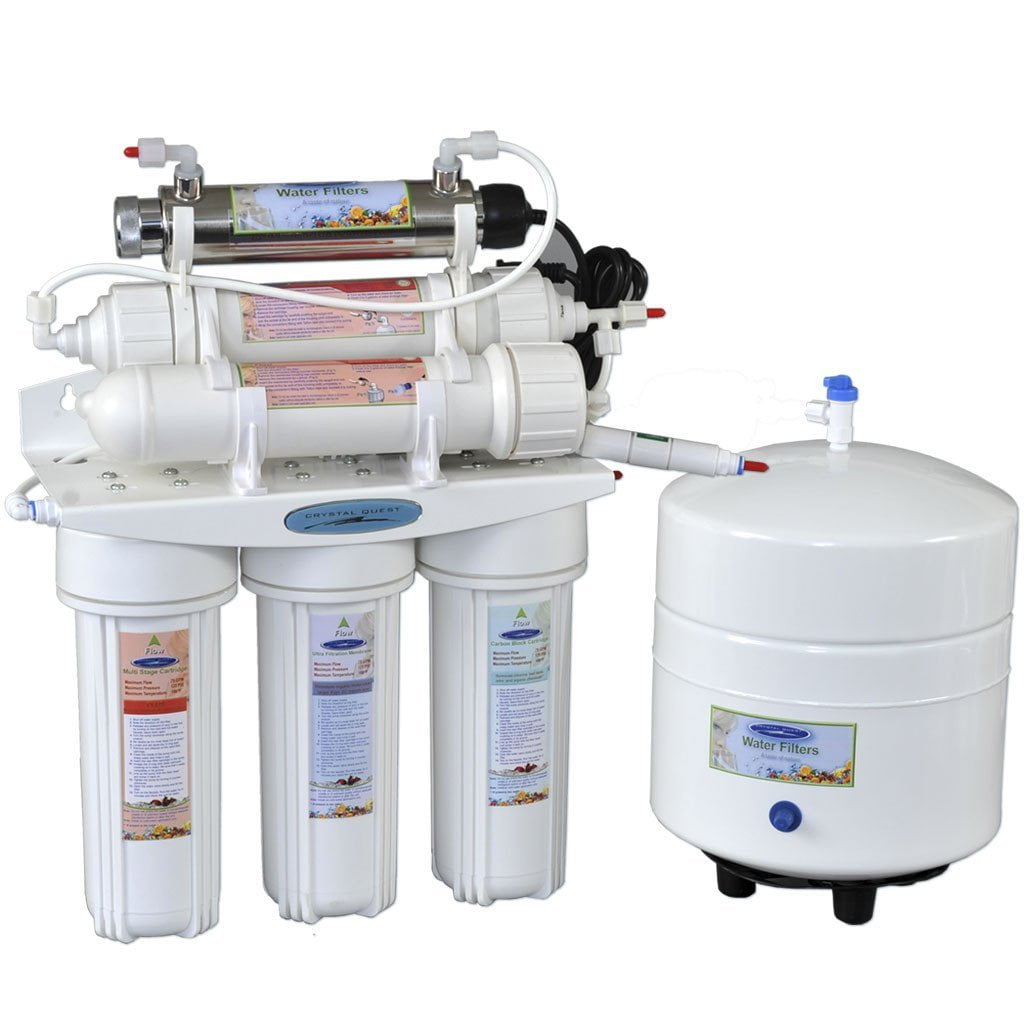
Water filtration is a predominant application of reverse osmosis filters and they have also been used to filter highly saline sea water to make it potable or fit for drinking. The unique filter system is characterized in a way that salt, organic substances, inorganic compounds, impurities, contaminants and other undesired substances are retained and only clean water is flushed or passed through the cleaner side of the membrane.
In simple words, reverse osmosis filters are the single most effective tool for removing impurities and contamination in water and are often used in combination with other water filtration systems for superior results. Reverse osmosis filters can be used on both small scale and large scale settings and are a good option for homeowners who are concerned about the quality and purity of drinking water.
The process of reverse osmosis (RO) is also referred to as ultra-filtration as it provides the purest possible water. Imagine water forced through a membrane having a pore size as small as 0.0001 micron or 0.00000004 inches. Reverse osmosis filters can filter out coarse sediments, particulate matter, heavy metals, hazardous chemicals, microbial growth and organic impurities present in water. Previously, this technology was only available for use by large industrial units but now you can have the same setting at your home in minimal space to easily access pure and clean drinking water whenever you want to.
The reverse osmosis filters available for home settings include a number of carbon cartridges along with other supporting installations. The presence of carbon cartridges in the filtration system reduces silt, sediment, sand, rust and chlorine from the water supply along with the removal of objectionable taste and odor that is found in unclean water.
The filter membrane in these settings is found enclosed in a type of container to maintain high pressure and force the water through the membrane. The most interesting aspect of reverse osmosis filters is the fact that substances retained or filtered out of the membrane are automatically sent to waste drain. This prevents buildup or accumulation of waste in reverse osmosis filter systems and is the main reason why these filters remain effective and functional as new even after long duration of use.
Reverse osmosis filters are very energy efficient and environment friendly as they do not release any type of chemical or other by-products during the filtration process. Many users of reverse osmosis filters appreciate the taste of purified water as these filters are effective in removing even the finest dissolved chemicals and minerals that cause water to look, smell and taste awful.
If you are planning to have a reverse osmosis filter system installed at your home, you will definitely be interested in knowing the advantages you get with the use of a RO filter. You can directly fill your water bottles from the faucet or outlet to enjoy clean and pure water. If you want to have clearer and better tasting ice cubes, you can fill your ice trays with water that is filtered using reverse osmosis.
The reverse osmosis filter system prolongs the life of your kitchen appliances such as electric kettles and coffee makers. Normally unfiltered water leads to development of hard scale deposits in these devices which reduces their efficiency and is also difficult to clean. Your other household appliances that use water such as irons and steamers will also not suffer from mineral or scale deposits, which are common at high temperatures when you use plain or non-filtered tap water.
You will definitely see an improvement in the taste of your meals cooked with RO filtered water. Your fruits and vegetables will not be deposited with minerals and contaminants found in unfiltered tap water and will therefore remain fresh for a long time. The storage tank provided with a reverse osmosis filter will give you purified water for all your needs and you don’t need to buy expensive bottled water to ensure your family’s health.
The use of reverse osmosis filters not only removes all harmful impurities, biological content and chemical contaminants in water but it is also efficient in removing calcium and magnesium salts, which are the main reason for hard scale deposits. If you want to significantly improve the quality of water at your home, you should get yourself a reverse osmosis filter system.


Share:
Whole House Water Filters
How to Remove Bacteria from your Drinking Water
3 comments
Hello Joanne,
I would recommend the Aquacera Reverse Osmosis System. Here is the link to it.
https://qualitywaterfilters4you.com/collections/reverse-osmosis/products/aquacera-niluspro-premium-reverse-osmosis-water-filter-system
Good morning!
I returned 3 days ago after spending 12 days in Haiti working with 2 organizations, one being Caring Hearts for Central Haiti, Inc., a 501©3 non-profit organization which I started in May 2019. (Actually, we are 3 senior citizen women and 1 Haitian Pastor working together to improve the quality of life for 2 small villages in Central Haiti).Through the use of a water testing kit from Micrology Labs in Goshen, Indiana, I was able to test the water we have in our office in Hinche, Haiti. It grew out Proteus and/or Salmonella. What would be a good reverse osmosis water filter that would work well? I plan to return in April for 5 days and I would like to get either a counter filtration system or under the sink system. I also need to know the time frame for changing filters. Thanks so much for your time.
Joanne Tanner
CEO Caring Hearts for Central Haiti, Inc
Need info about a reversal osmosis filter for our house. Thanks!